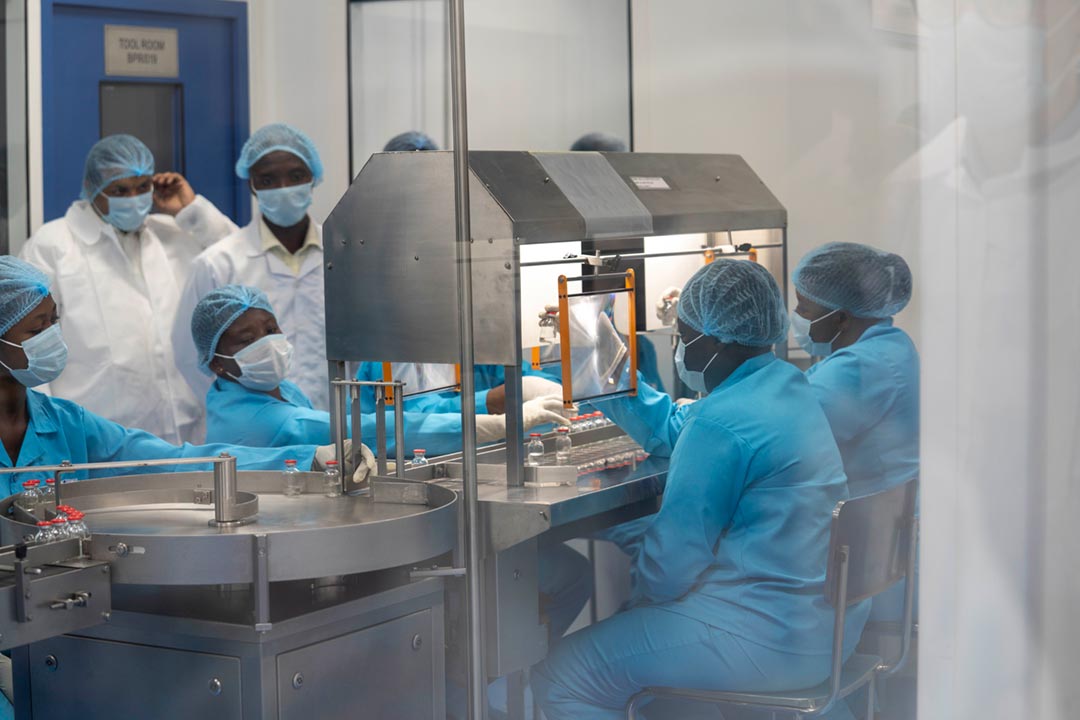African Vaccine Manufacturing Accelerator: breaking the cycle of disadvantage
Last week the Gavi Board met in Accra, where they approved a US$ 1 billion initiative to help boost vaccine manufacturing on the African continent. Dr Zaeem Ul Haq, Special Adviser to the Board’s Eastern Mediterranean constituency, tells VaccinesWork why this means so much.
- 14 December 2023
- 4 min read
- by Zaeem Ul Haq

I was still applauding while everyone else had stopped doing so, on the approval of US$ 1 billion for the African Vaccine Manufacturing Accelerator (AVMA) during the Gavi Board meeting in Accra last week. It's okay, sometimes, to have personal and emotional reasons for our professional work, I said to myself. Despite coming from a different continent, this approval of the AVMA fund was an emotional moment for me.
The approval will make locally manufactured vaccines available to Africans, including the grandchildren of David Nzema. David was my classmate during my doctoral study in the US, and an avid reader of the literature on breaking the cycle of disadvantage.
With AVMA in place, working hand in hand with the continent-wide effort to boost Africa’s vaccine manufacturing capacity, David’s grandchildren will receive all the vaccines, and these could be primarily manufactured within Africa.
Disadvantage is a collective effect that comes through a combination of poverty and illiteracy, causing prolonged illness and untimely deaths, and transfers itself from one to the next generation.
My doctoral research was about introducing an intervention during the early years of disadvantaged children in rural Pakistan, to break that cycle of disadvantage. David loved my work, as he could relate to it because of his own childhood experience. He had lost his father and seen extreme disadvantages of every type during his childhood. He was from Ghana and was working on his dissertation when I completed mine and returned to Pakistan.
His dreams of breaking the cycle in his own country through similar work shattered when his health suddenly deteriorated, and he had to be hospitalised. A liver infection that had led to cancer was diagnosed.
Ironically, this infection was preventable with a vaccine, had he received it in his early childhood. Fifty years ago, when David was a child, this vaccine was used only in some high-income countries. It was not until 2002 that Ghana could include this vaccine in its immunisation program.
Unable to avail himself of the benefits of the hepatitis B vaccine, David contracted the infection at some unknown time in his life. Unbeknown to him, the infection went on to become chronic, as it does in about 25% of cases. Characterised as end-stage liver disease (ESLD), it could not be treated. David passed away while in an ICU, adding to the disadvantage of his children and family. They were waiting for a father, a husband, and a brother with a PhD attached to his name, but rather received a casket. That was about ten years ago.
Have you read?
Today, Ghana is breaking the shackles of disadvantage. It has invested in its health system, especially primary health care. According to the Demographic and Health Survey 2022, 73% of Ghanian children are fully immunised today, compared to only 19% in 1988. As a result of this and similar lifesaving and health-improvement policies, the under-five child mortality has reduced from 155/1,000 in 1988 to 40/1,000 in 2022. Ghana is among the three countries where the malaria vaccine was successfully piloted and is being rolled out to all children.
I contacted David's family when I arrived in Accra for this Board meeting. His brother, James, was kind enough to come over, and we had an opportunity to reminisce about David. We both recalled his humane character and scholarly aptitude, and thought he'd be smiling wherever he was today.
James told me that Ghana has a much-improved system than it did 40 years ago: David's three children are fully immunised and are studying at school. Of course, they miss their father, but they are in good health and proficient in their studies, on the way to breaking one link in the chain of trans-generational disadvantage.
With AVMA in place, working hand in hand with the continent-wide effort to boost Africa's vaccine manufacturing capacity, David's grandchildren will receive all the vaccines, and these could be primarily manufactured within Africa. A process is about to start that will not only save lives but also improve the research and scholarly environment in Africa, along with bolstering its economy.
The writer, @ZaeemUlHaq3, is a special adviser to the Gavi EMRO constituency.





